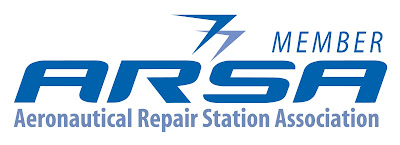The
Aeronautical Repair Station Association (ARSA) told Congress in a
letter about the significant economic impact the aviation maintenance
industry has in communities throughout the country and urged
lawmakers to keep the sector’s contributions and safety record in
mind when considering legislative proposals.
The letter highlights a new report commissioned by ARSA, “Global MRO Market Economic Assessment,” which detailed the economic impact and market breakdown of the aviation Maintenance, Repair, and Overhaul (MRO) industry. Specifically, the study determined that the MRO industry has a direct and indirect impact of $47 billion on the U.S. economy and employs 306,000 U.S. workers, adding 30,000 new jobs since 2009.
The study provides national and state-by-state analysis of the civil aviation maintenance marketplace, focusing on the heavy airframe, engine, component, and line maintenance segments of the industry. ARSA hopes the new data will help lawmakers better understand the integral role the maintenance sector plays in aviation and in creating economic growth and jobs across the country.
“The report makes clear that although maintenance may be the least visible segment of the aviation industry, in addition to helping U.S. airlines become safer and more competitive, repair stations are significant economic contributors throughout the country. Unfortunately, the industry’s economic impact and jobs are directly threatened by policies coming out of Washington, including the current ban on foreign repair station certificates and indiscriminate cuts to FAA funding,” ARSA Vice President of Legislative Affairs Daniel Fisher said.
The letter highlights a new report commissioned by ARSA, “Global MRO Market Economic Assessment,” which detailed the economic impact and market breakdown of the aviation Maintenance, Repair, and Overhaul (MRO) industry. Specifically, the study determined that the MRO industry has a direct and indirect impact of $47 billion on the U.S. economy and employs 306,000 U.S. workers, adding 30,000 new jobs since 2009.
The study provides national and state-by-state analysis of the civil aviation maintenance marketplace, focusing on the heavy airframe, engine, component, and line maintenance segments of the industry. ARSA hopes the new data will help lawmakers better understand the integral role the maintenance sector plays in aviation and in creating economic growth and jobs across the country.
“The report makes clear that although maintenance may be the least visible segment of the aviation industry, in addition to helping U.S. airlines become safer and more competitive, repair stations are significant economic contributors throughout the country. Unfortunately, the industry’s economic impact and jobs are directly threatened by policies coming out of Washington, including the current ban on foreign repair station certificates and indiscriminate cuts to FAA funding,” ARSA Vice President of Legislative Affairs Daniel Fisher said.
